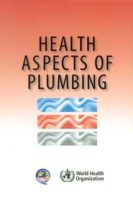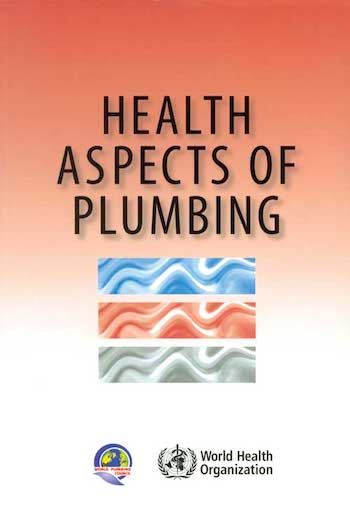Phoenix—CEO Ken Goodrich of Goettl Air Conditioning and Plumbing, a leading provider of HVAC and plumbing services in the Southwest United States, announced he is spending $1.5 million to install Ultra Violet (UV) germicidal lights in the homes of more than 600 employees. Deemed an essential business during an unprecedented time in our nation, Goettl’s Read more
coronavirus
 Phoenix—CEO Ken Goodrich of Goettl Air Conditioning and Plumbing, a leading provider of HVAC and plumbing services in the Southwest United States, announced he is spending $1.5 million to install Ultra Violet (UV) germicidal lights in the homes of more than 600 employees.
Phoenix—CEO Ken Goodrich of Goettl Air Conditioning and Plumbing, a leading provider of HVAC and plumbing services in the Southwest United States, announced he is spending $1.5 million to install Ultra Violet (UV) germicidal lights in the homes of more than 600 employees.
Deemed an essential business during an unprecedented time in our nation, Goettl’s HVAC and plumbing technicians have continued to work tirelessly to ensure their community is receiving essential life systems and services throughout the COVID-19 pandemic. To show appreciation for their hard work and dedication, Goodrich is giving each Goettl employee a new UV germicidal light that will be installed into their personal HVAC system.
“Our technicians are putting their own well-being and safety second to serve their communities,” said Goodrich. “I want them to know how much we appreciate their unwavering dedication and bravery by giving them a product that will hopefully provide their own families with invaluable peace of mind during these uncertain times.”
The UV germicidal light, which mimics natural sunlight, uses ultraviolet radiation to drastically decrease indoor germs such as mold, fungi and bacteria. Additionally, the UV radiation destroys the nuclei of each contaminant preventing it from reproducing. Proven to kill viruses of many strains, this type of UV light is also used in hospitals and food processing plants nationwide.
The safety and well-being of Goettl employees is top priority for Goodrich and his executive team. As technicians are a critical resource for essential home services, Goodrich is committed to doing as much as possible to help ensure they stay safe and healthy during this public health crisis.
“At Goettl, we believe in doing things the right way, not the easy way and what’s right is keeping our employees safe and as healthy as possible so that they may continue to serve their beloved communities,” Goodrich continued.
Washington, D.C. — The President and U.S. Department of Homeland Security (DHS) have issued a Coronavirus Guidance for America identifying plumbers and other tradespeople as “essential critical infrastructure workers” as our nation responds to the threat of COVID-19. In a DHS memorandum issued by Cybersecurity and Infrastructure Agency (CISA) Director Christopher C. Krebs, CISA announced Read more
Washington, D.C. — The President and U.S. Department of Homeland Security (DHS) have issued a Coronavirus Guidance for America identifying plumbers and other tradespeople as “essential critical infrastructure workers” as our nation responds to the threat of COVID-19.
In a DHS memorandum issued by Cybersecurity and Infrastructure Agency (CISA) Director Christopher C. Krebs, CISA announced development of an initial list of Essential Critical Infrastructure Workers “to help state and local officials as they work to protect their communities, while ensuring continuity of functions critical to public health and safety, as well as economic and national security.”
The list identifies those professions deemed essential to continued critical infrastructure viability and advises such workers to continue normal operations, appropriately modified to account for Centers for Disease Control (CDC) workforce and customer protection guidance.
“Workers such as plumbers, electricians, exterminators, and other service providers who provide services that are necessary to maintaining the safety, sanitation, and essential operation of residences,” are specifically recognized on the list, which may be viewed here:
https://www.iapmo.org/media/23516/dhs_essential_workers.pdf
IAPMO recently published a guidance for plumbing professionals working under the threat of COVID-19 authored by Peter DeMarco, Executive Vice President of Advocacy and Research for The IAPMO Group. That white paper may be viewed here:
https://www.iapmo.org/media/23453/coronavirus_guidance_for_plumbers.pdf
“Our industry has known for many decades that its contribution to society is essential to global health,” said IAPMO CEO GP Russ Chaney. “This new guidance, to state and local officials from the White House, validates that our industry is vital to the United States. Our highly skilled plumbers have been deemed essential to the nation’s ability to function and recognized as people on whom we can all depend in normal times or a global crisis.”
For more information on IAPMO and its proactive initiatives in response to the COVID-19 global pandemic, direct your web browser to www.iapmo.org.
San Antonio, Texas — The co-conveners of the 2020 Emerging Water Technology Symposium (EWTS), which was scheduled for May 12-13 in San Antonio, have postponed the event and tentatively rescheduled for next year, May 11-12, 2021. “This change was necessitated after thoughtful consideration of the growing concerns related to the COVID-19 pandemic,” said IAPMO’s Peter DeMarco Read more
San Antonio, Texas — The co-conveners of the 2020 Emerging Water Technology Symposium (EWTS), which was scheduled for May 12-13 in San Antonio, have postponed the event and tentatively rescheduled for next year, May 11-12, 2021.
“This change was necessitated after thoughtful consideration of the growing concerns related to the COVID-19 pandemic,” said IAPMO’s Peter DeMarco, the event’s lead technical organizer. “The health and safety of our attendees, presenters and staff is, of course, our highest priority.”
The decision to postpone the symposium for a full year was made in consideration of other co-convener sponsored technical events that remain scheduled in 2020. Organizers recognize this change may not work for all attendees, sponsors, exhibitors and speakers. Accordingly, all registrations will be fully refunded and all hotel reservations that were made under the EWTS room block will be automatically canceled. Registrants should receive a cancellation notification from the hotel.
Organizers will be reaching out to sponsors, exhibitors and speakers in the days ahead and will work closely with all parties to help determine their plans for the rescheduled EWTS.
“The postponement is especially disappointing to the organizing technical committee when considering the amazing program that was on tap,” DeMarco said. “Our registration numbers were by far the highest ever and the event was well on the way to selling out. We will work hard to generate the same level of excitement for the 2021 EWTS.”
Co-convened biennially by the American Society of Plumbing Engineers (ASPE), the Alliance for Water Efficiency (AWE), the International Association of Plumbing and Mechanical Officials (IAPMO), and Plumbing Manufacturers International (PMI), in cooperation with the World Plumbing Council (WPC), EWTS is designed to provide a portal for the host organizations’ partners in the manufacturing, engineering and trade industries to display and demonstrate their innovative solutions to legislative and regulatory developments that often alter industry landscapes.

By Pete DeMarco, Executive Vice President of Advocacy and Research, IAPMO Health officials in Hong Kong have determined that plumbing systems in certain high-rise buildings are implicated in recent cases of the COVID-19 coronavirus. Based on the limited information available, it’s clear that transmission paths that would allow for the virus to spread between individual apartment Read more
By Pete DeMarco, Executive Vice President of Advocacy and Research, IAPMO
Health officials in Hong Kong have determined that plumbing systems in certain high-rise buildings are implicated in recent cases of the COVID-19 coronavirus. Based on the limited information available, it’s clear that transmission paths that would allow for the virus to spread between individual apartment units in at least one high-rise building have been identified. In order to understand how this has happened, it’s important to have some very basic knowledge of how wastewater systems work in high-rise buildings and to also look back at the SARS outbreak of 2003; the parallels are striking. In fact, the SARS virus is also a strain of coronavirus, so it’s not surprising that COVID-19 has been identified as having the potential to spread through plumbing systems.
 High-rise buildings present unique challenges in plumbing design. The following simplified explanation is intended to help illustrate the problem: When toilets in high-rise buildings are flushed, fecal matter and wastewater are discharged into a vertical wastewater pipe, called a “drainage stack.” As the wastewater descends in the stack, it creates pressure changes within the pipe. The wastewater flowing down a stack will push air down ahead of it and drag air behind it, creating both positive and negative pressures within the drainage system. These pressures can affect trap seals by either siphoning the water or pushing the water out of the trap. A second vertical pipe, called a “vent stack,” typically runs parallel to the drainage stack and introduces air into the drainage stack every fifth floor to avert excessive changes that could deplete trap seals and allow contaminated air and aerosols to enter apartments on other floors.
High-rise buildings present unique challenges in plumbing design. The following simplified explanation is intended to help illustrate the problem: When toilets in high-rise buildings are flushed, fecal matter and wastewater are discharged into a vertical wastewater pipe, called a “drainage stack.” As the wastewater descends in the stack, it creates pressure changes within the pipe. The wastewater flowing down a stack will push air down ahead of it and drag air behind it, creating both positive and negative pressures within the drainage system. These pressures can affect trap seals by either siphoning the water or pushing the water out of the trap. A second vertical pipe, called a “vent stack,” typically runs parallel to the drainage stack and introduces air into the drainage stack every fifth floor to avert excessive changes that could deplete trap seals and allow contaminated air and aerosols to enter apartments on other floors.
When the SARS outbreak occurred in 2003, problems with dry traps were indicated, allowing contaminated air and wastewater aerosols to enter into apartments on lower floors through floor drains that are required by Chinese and many other Asian national construction codes. A full explanation of how the SARS outbreak occurred and technical solutions providing health and safety associated with proper plumbing practices can be found in The Health Aspects of Plumbing, a publication produced by the World Health Organization and the World Plumbing Council.
Sadly, with the current coronavirus outbreak in Hong Kong, history seems to have repeated itself. According to the Associated Press, a 2016 Hong Kong Housing Department policy change has allowed tenants in certain high-rise apartments to alter the pipe design in their bathrooms without requiring an inspection by a plumbing official, causing the problem that might have helped spread COVID-19. In one of the apartment units, the vent pipe was completely disconnected inside the bathroom, apparently by the occupant, which provided a pathway for contaminated air to enter the apartment, especially when the bathroom ceiling fans were activated. When health officials became aware of this problem, the building was evacuated, hopefully limiting the number of additional illnesses among building residents.
Can the COVID-19 coronavirus be spread in high-rise buildings in the United States in a similar manner? In short, the answer is yes, but unlikely. Due to U.S. plumbing codes, any modification to a building’s water, waste or vent system must be performed by a qualified professional and necessitates an inspection by a code official. In addition, wastewater stacks and vent pipes are typically hidden behind walls in high-rise buildings, reducing the opportunity for residents to easily cut into pipes and create unsafe conditions.
Both the SARS and the current COVID-19 coronavirus outbreaks in Hong Kong illustrate the importance of proper plumbing design and practice in keeping building residents safe from disease and the profound problems that can develop when unqualified individuals decide to work on building water systems. The axiom “the Plumber Protects the Health of the Nation” is more than a slogan. Improper deviations to building plumbing systems can, and indeed often do, result in very significant loss of life and property.
